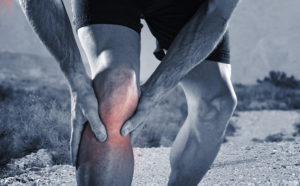 Everyone will experience some kind of joint pain in their lifetime, from a sprained ankle at a sporting event to a chronic condition like arthritis. As you age, you might start to experience more joint pain as your joints slowly start to wear down due to general wear and tear on the body or other causes like arthritis. Chronic joint pain typically develops from degenerative conditions, though it is also possible to experience chronic joint pain from an injury that didn’t heal properly. No matter what the cause of your joint pain, you might want to search for “orthopedic doctors near me” to find lasting relief.
Everyone will experience some kind of joint pain in their lifetime, from a sprained ankle at a sporting event to a chronic condition like arthritis. As you age, you might start to experience more joint pain as your joints slowly start to wear down due to general wear and tear on the body or other causes like arthritis. Chronic joint pain typically develops from degenerative conditions, though it is also possible to experience chronic joint pain from an injury that didn’t heal properly. No matter what the cause of your joint pain, you might want to search for “orthopedic doctors near me” to find lasting relief.
Inflammation in and around the joint can lead to pain that can become chronic over time. This chronic joint pain can start to affect your range of motion and ability to complete certain movements and tasks like you used to without experiencing significant discomfort. When chronic joint pain starts to restrict your movements, you want to talk to a doctor about how to preserve your mobility. An orthopedic doctor will work with you to determine the root cause of your chronic joint pain so they can address that as well as the pain symptoms. In many cases, combining treatments can help provide you with the best model for success when it comes to relieving chronic joint pain.
Here are 7 of the top treatments for chronic joint pain:
1. Rest
Making time to rest the affected area gives your body a chance to heal and recover. Especially when your chronic joint pain is worsened by certain movements, you need to build time into your schedule to allow for proper amounts of rest. The best way to relieve your pain is by taking the pressure off of your joints, which is where rest comes in. However, there is a balance to rest because you don’t want to completely stop certain movements, or else you risk becoming stiff and actually increasing your knee pain.
2. Ice & Heat
Alternating ice and heat helps bring about immediate relief for aching, painful joints. Applying ice to the affected joint helps to reduce swelling and inflammation in the area. Icing the area also provides a temporary numbing effect for the pain. Then applying a warm compress to the area will help promote healthy blood flow and circulation to the area. When you apply heat to the area, it also encourages supportive muscles and tissues to relax.
3. Medication
You might try over-the-counter pain medications at home to address your chronic joint pain. However, medications will only address your symptoms and cannot treat the root cause of your pain. Pain medications like NSAIDs can help reduce your joint pain and stiffness, as well as swelling and inflammation. These medications likely won’t be enough to help with the pain, but you can talk to your doctor about how this might supplement your treatment options.
4. Physical Therapy
Your doctor may recommend physical therapy to help reduce your pain and improve your mobility. Stretches and exercises can help your joints and the muscles that support them. Your physical therapist may recommend certain stretches and exercises that you can even learn to do at home that can help with inflammation, range of motion, strength, and flexibility.
5. Steroid Injections
In certain cases, your doctor may recommend steroid injections to help with chronic joint pain. While steroid injections aren’t a cure for joint pain, they can provide you with longer periods of relief from chronic joint pain so you can work with your doctor to relieve pressure from the affected joints.
6. Losing Weight
Obesity is a common reason for chronic joint pain because carrying additional weight puts extra pressure on joints, especially the hips, knees, and ankles. Losing weight can help to remove that extra pressure off of your joints so they can function better. This will also help encourage healthy blood flow and nutrients to the affected area.
7. Joint Surgery
In the most serious cases of chronic joint pain, your doctor may recommend surgery. There are different types of joint surgery depending on what joints are affected and the root cause. Your doctor will discuss whether surgery is the right option for you if you struggle with chronic joint pain.
At AICA Orthopedics in Snellville, our teams of orthopedic doctors work together on a multi-specialty team of doctors to provide each patient with quality, comprehensive care.
